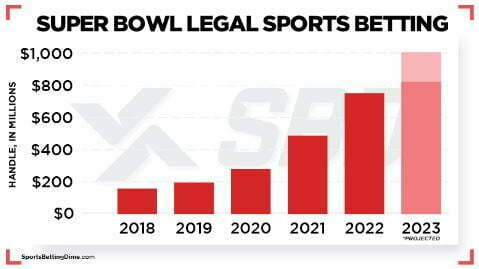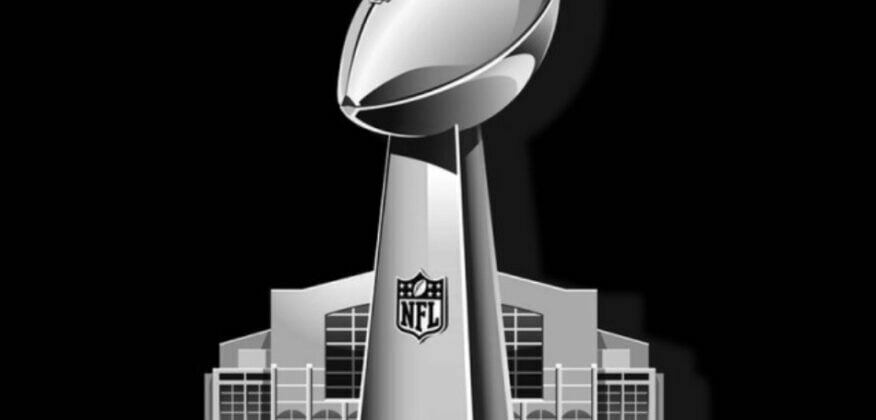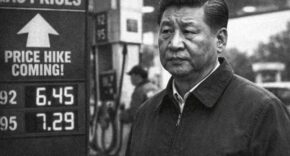The Super Bowl is one of the largest annual events in the United States and has a significant impact on the country’s economy.
Every year, millions of people gather to watch the game, either in person or through various forms of media. The economic effects of the Super Bowl are far-reaching, touching various industries and regions across the country.
This year’s match-up between the Philadelphia Eagles and the Kansas City Chiefs in Arizona will likely be no different. After all, consumption is two-thirds of GDP, which is the way we measure economic growth. The impact of the Super Bowl on the economy and its boost to consumer spending is significant.
People buy new televisions, furniture, and other household items to watch the game in comfort. They also purchase tickets to the game, merchandise, and food and beverages to enjoy while watching. This increased consumer spending creates jobs and contributes to economic growth.
It is estimated that Super Bowl-related consumer spending in the U.S. stood at about 16.5 billion U.S. dollars in 2023. The average American consumer plans to spend around $85 on Super Bowl Sunday. Let’s take a look at some of the Super Bowl stats provided by Statistica:
- The advertising revenue from the 2021 Super Bowl was a record 485 million U.S. dollars.
- An average 30-second ad spot during the Super Bowl broadcast cost an estimated 6.5 million U.S. dollars in 2022. (side note: you probably won’t be seeing a lot of crypto advertising again this year)
- TV viewership of the Super Bowl in the U.S. alone is estimated to be 99.18 million people
- The average Super Bowl party spending by the host in the U.S. is $118
One of the most obvious effects of the Super Bowl on the economy is the boost in tourism. The city that hosts the Super Bowl sees an influx of visitors, which leads to increased spending on hotels, restaurants, and other local businesses. This creates new job opportunities and generates revenue for local economies. In addition, the Super Bowl generates significant revenue for the NFL, its teams, and other related businesses, which contributes to the overall economy.
Let’s take a look at some of the numbers behind last year’s Super Bowl in LA. The Los Angeles Super Bowl Host Committee released an extensive report estimating the game’s overall economic impact to be between $234 million and $477 million. Details include:
- The report estimated that the game would bring 2,200 to 4,700 new jobs to the L.A. region, primarily in transportation, hotels and motels, restaurants, and personal care.
- A projected 100,000 to 150,000 out-of-towners will come to the area, staying an average of four days.
- Short-term lodging and other “direct” impacts of the game could account for as much as $258.5 million of the total impact.
The Super Bowl also has a significant impact on the advertising industry. As noted, the high viewership of the game means that companies are willing to pay premium prices for commercial time during the broadcast. This generates significant revenue for television networks and other media companies. In addition, many companies create Super Bowl-themed advertisements, which often go viral on social media and generate even more exposure and revenue.
In addition to these direct economic effects, the Super Bowl also has a significant impact on the psychology of consumers. The excitement and energy surrounding the game can increase consumer confidence and encourage people to spend more money.
This creates a positive feedback loop that helps to boost the overall economy. Speaking of psychology, individuals’ gambling on this year’s Super Bowl will reach approximately $16 billion in the U.S. alone, more than double that of last year.
More than 50 million Americans (or one in five adults) are expected to bet on the game this year, according to new data from the American Gaming Association (AGA), an all-time record. Some 30 million people will bet traditionally, either online, with a bookie, or in person at a sportsbook. Another 28 million will bet casually with friends or as part of a pool or contest.

The Super Bowl is a major event that has a significant impact on the United States economy. From boosting tourism and consumer spending to generating revenue for the advertising industry and contributing to economic growth, the Super Bowl has a far-reaching and positive impact on the country’s economy. Go Chiefs!











